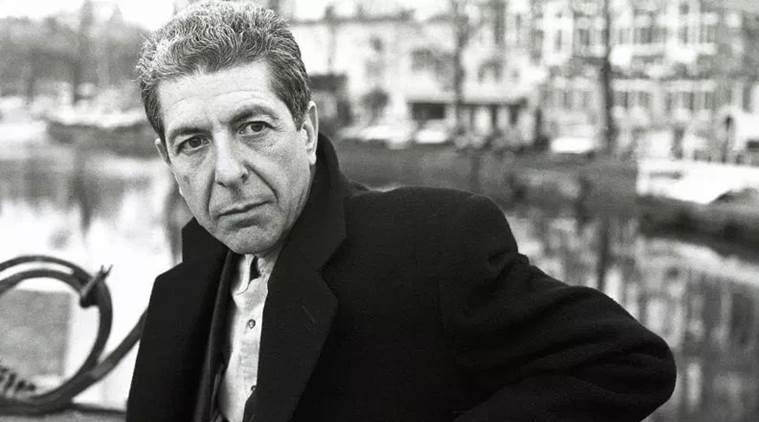- India
- International
Leonard Cohen: The selfish, selfless lover
Over the years, I have not as much listened to Cohen’s songs as I have gone back to them, each time with more fervour to seek refuge.
 Leonard Cohen is one of the greatest poets of our times. (Source: File Photo)
Leonard Cohen is one of the greatest poets of our times. (Source: File Photo)
I chanced upon Leonard Cohen when I was 18. Like all memorable encounters, I remember the details: His raspy baritone that tends to insidiously grow on you, his strange words, a woman called Suzanne – clad in rags and feathers, and a lover who claimed he had no love to give her. And yet, he was willing to travel with her, even travel blind, for the river told him that he had always been her lover.
This curious state of being hopeless and hopeful, of waiting to be loved more than willing to love, and confessing the same without hesitance or shame spoke to my insecure teenage self like few things did. It also defined Cohen for me and his distinct, peculiar brand of love.
Eight years have passed since then. I have fallen in love many times since then. I have hurt and have been hurt, have left and have been left behind with equal, if not more, brutality many times since then. I have felt, in my most private moments, exhilarated and exacting, fettered and free, selfless and selfish. I have also discovered that these do not make me any less in love or any less a lover, but they reaffirm that I am in love and this is what lovers do.
If I speak of love and lovers with such generosity, it is because Cohen has convinced me so, through all these eight tumultuous years.
Cohen, I feel, is the greatest poet of our times. I say this not because he has created poetry out of rags and feathers, conjured love in hearts where there was none, and made being “half-crazy” look enticing and an imperative to be in love. It is because even when standing on the throes of losing his love, he retains enough compassion (and perhaps love) to know that sometimes leaving someone can feel a little bit like being left. It is because he pauses when he sees his lover’s eyes are soft with sorrow, and without resorting to bitterness, chides her gently, “Hey, that’s no way to say goodbye.”

It is because he does not merely rhyme his words as a poet but as a lover reveals that he has lived those words, that his feet are made of clay, that he is “forsaken, almost human“.
Over the years, I have not as much listened to Cohen’s songs as I have gone back to them, each time with more fervour to seek refuge, to be reprimanded and ultimately to be reminded that love, with its rough edges, hurt. But what makes Cohen truly special is his ability to show you where to look “among the garbage and the flowers”, to make the state of being in love look so miserable and aspiring, to be perpetually and recklessly drunk in love without warning or restraint, and to ultimately treat leaving and being left behind with similar pathos and bitterness.
The more I listen to his songs, the more I am convinced that Cohen does not really expand the definition of love. Rather, he adds to it. Perennially stranded on the fringes, he legitimises his own transgressions as well his lovers.
Everybody knows that you love me, baby
Everybody knows that you really do
Everybody knows that you’ve been faithful
Ah, give or take a night or two.
He tells us that there is not one way to love, that the duty of lovers is not to conform but to “tarnish the golden rule”. Writing a letter to your lover’s lover, reminding them of their betrayal and thanking them for stopping by can also qualify as love.
And thanks for the trouble
You took from her eyes
I thought it was there for good
So I never tried
To be wanting to be free and yet resisting to let go of, is love too.
Like a baby, stillborn
Like a beast with his horn
I have torn everyone who reached out for me
But I swear by this song
And by all that I have done wrong
I will make it all up to thee
Cohen introduces an acute sense of helplessness and abandonment in love, reminding us that to be proud of love and to be proud in love are not the same, and it bears no discredit to a lover if they refuse to be the latter. As if to illustrate this, he exposes his own vulnerability without a trace of ignominy.
And I’d fall at your feet
And I’d howl at your beauty
Like a dog in heat
And I’d claw at your heart
And I’d tear at your sheet
I’d say please, please
I’m your man
But for all his empathy, he too is only human, frequently afflicted by love and visibly enraged by it. And just when you fear he would give up, you find him complaining about love while standing at the altar of love: praying to be relieved of it, and yet asking for it in return.
I showed my heart to the doctor
He said I just have to quit
Then he wrote himself a prescription
And your name was mentioned in it
What tortures him also redeems him. What sinks him also elevates him. He does not expect himself or his lover to be ideal because he does not see love as an ideal. He tells you it is all right to be flawed as lovers because love itself is flawed. But he also tells you, that love is all we have. It is both the cross we bear and the reason why we are willing to bear it.
By being compassionate, jealous, bitter and forgiving, by putting all of these in his songs, by making them about love, and by making lovers like them, Cohen deflates the grandiosity associated with love without debasing it. And I go back to him precisely for this: to forgive and to be forgiven, to remember that sometimes love entails being left behind and sometimes compels to leave. Love is unreasonable and unkind, as flawed as us, but it also sustains us and, on some days, even saves. He knows, he understands.
There is quite no one like Cohen. Everybody knows.
Must Read
May 20: Latest News
- 01
- 02
- 03
- 04
- 05

































